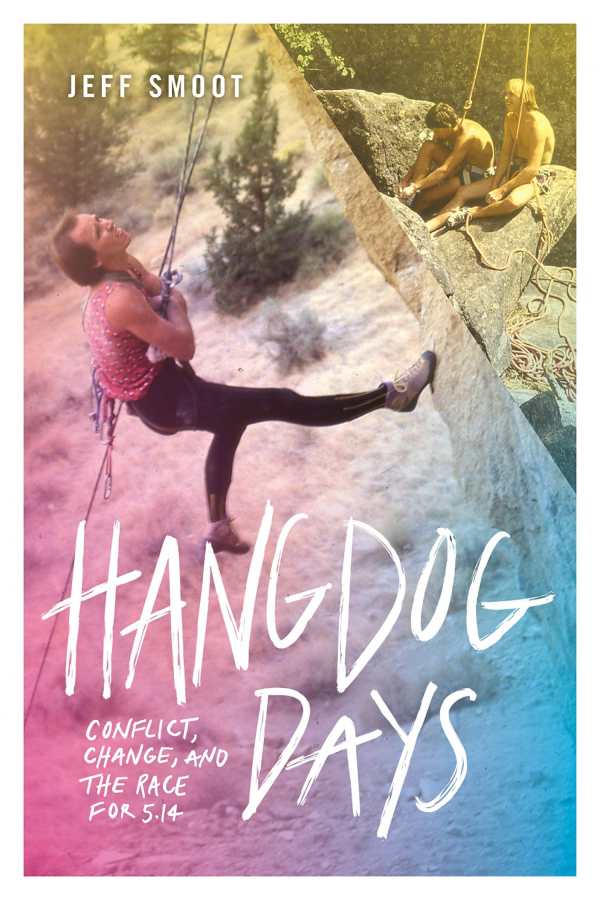Hangdog Days
Conflict, Change, and the Race for 5.14
In his book Hangdog Days, Jeff Smoot chronicles the controversial method of “hangdogging” a climbing route and the debate that raged during the 1980s in climbing circles about this method.
Hangdogging is a rock climbing slang word meaning to work the hardest moves of a route while hanging from the rope. Smoot begins his book with a brief history of rock climbing up to the late 1970s, covering the ethical mores that the older generations of rock climbers held and how they climbed hard routes. He gives an early glimpse of the controversial use of placing bolts for protection and help along a route. The book’s central story, though, begins in 1977, with a route called The Phoenix, one of the first known routes to employ the controversial method of hangdogging.
Part history and part memoir, Smoot’s book uses his personal experiences as a climber and freelance rock-climbing magazine writer as the vehicle to narrate the sport’s rocky transition from the purview of a few grizzled climbers to a phenomenon that attracted younger and more eager climbers wanting to climb harder routes once thought impossible to scale.
Smoot’s story incorporates the biggest names of the era—everyone from John Bachar to Todd Skinner to Lynn Hill. Each one adds to the debate about the ethics of hangdogging a route. While Smoot does have an opinion on the topic, he does an admirable job of not letting it color his presentation.
Currently the hardest rock climb in the world is a route called Silence, rated 5.15d. That is almost two grades harder than the 5.14 limit written about in Hangdog Days, but without the debate of bolting routes and hangdogging in the 1980s, routes like Silence may have never been climbed. Smoot observes that, in the end, it was neither tradition nor sport that won the debate—in the end, the real winner was climbing.
Reviewed by
Eric Patterson
Disclosure: This article is not an endorsement, but a review. The publisher of this book provided free copies of the book to have their book reviewed by a professional reviewer. No fee was paid by the publisher for this review. Foreword Reviews only recommends books that we love. Foreword Magazine, Inc. is disclosing this in accordance with the Federal Trade Commission’s 16 CFR, Part 255.

